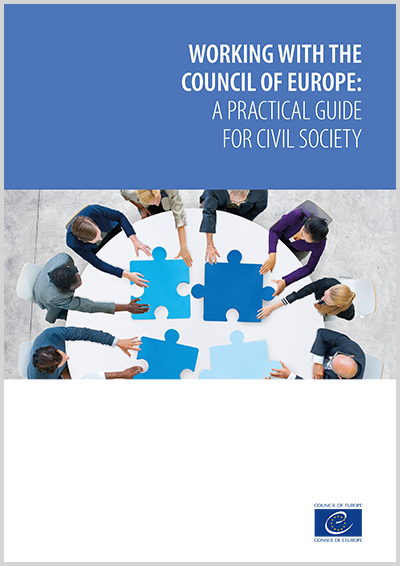Council of Europe's co-operation sector and NGOs

Active participation by civil society in co-operation programmes is essential, both in devising and implement- ing them and in helping member states and other partners achieve European standards and practice. Civil society is involved in co-operation activities across all sectors. The Council of Europe supports independent monitoring and puts considerable emphasis on fostering dialogue between civil society and authorities to ensure reforms are relevant and transparent. One example is consultative NGO councils that allow civil society to become involved in the design and implementation of national policies. Civil society regularly takes part in Council of Europe activities such as public hearings and training sessions and is involved in different stages of technical co-operation activities, either formally, informally or through direct engagement in project delivery.
The Council of Europe applies a project management methodology at all levels and stages of its co-operation programmes, bringing human rights norms and processes into project management, avoiding any uninten- tional harm, imbalance or negative impact in its work and achieving sustainable and high quality outcomes. The human rights approach is guided by four main principles: participation and inclusion, including engage- ment with civil society; equality and non-discrimination, by including and empowering vulnerable people; accountability to partners, beneficiaries and the public, and transparency and access to information.
Co-operation is usually managed through a country action plan or similar programming documents in accor- dance with the guidelines on civil society organisations’ participation in Council of Europe’s co-operation activities. Civil Society is always included in drawing up and carrying out action plans. At project level, civil society participates in steering committee meetings and in the implementation of some project activities. They are the main target group of some projects.



